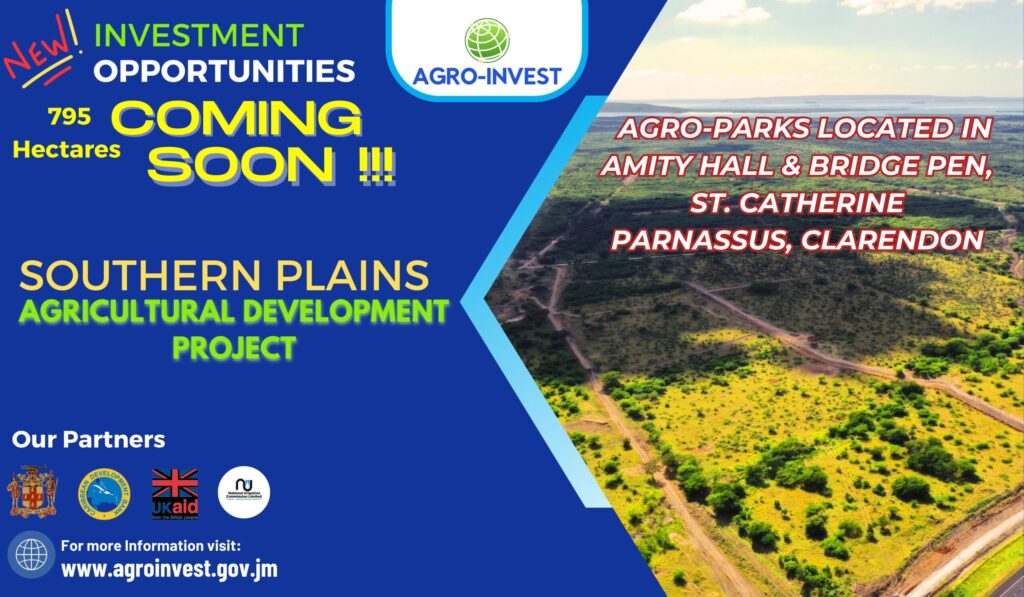Farmers in the parish of Clarendon and St. Catherine are set to benefit from the availability of repurposed sugarcane lands to plant various crops under the Southern Plains Agricultural Development (SPAD).
Funded by the United Kingdom Caribbean Infrastructure Development Fund and administered by the Caribbean Development Bank, the project is expected to benefit small and medium-sized farmers.
The Agro-Investment Corporation, an agency of the Ministry of Agriculture and Fisheries will be leading the roll-out and development of the project.
Seven Hundred and Ninety-Five hectares (795 ha) of lands in Parnassus in Clarendon, and Amity Hall and Bridge Pen in St. Catherine are available and a vast majority of this land will be leased to commercially oriented farmers (large- and small-scale including women and youth). Specific mechanisms were built into the project to facilitate the participation of poor and vulnerable groups – women and youth.
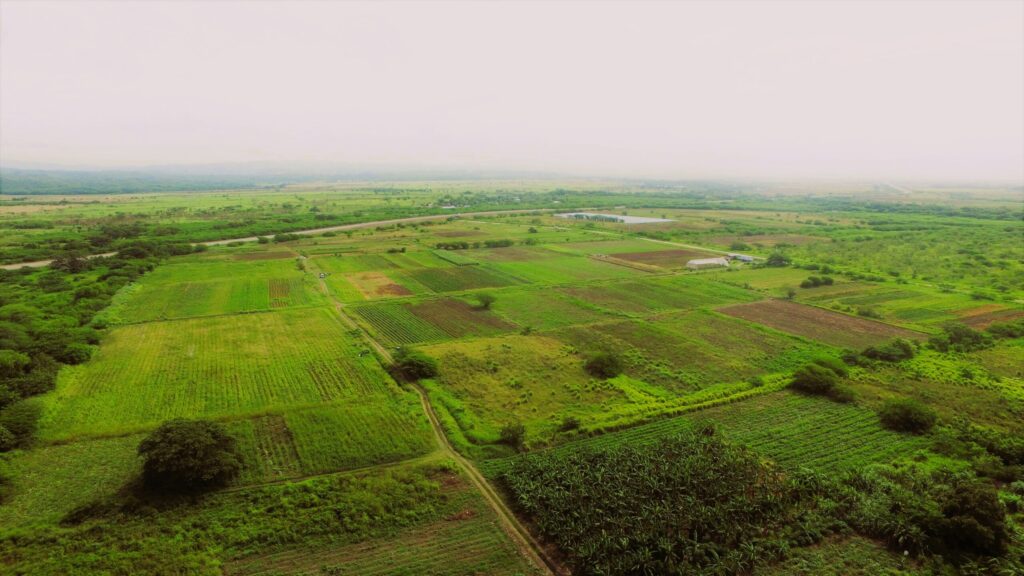
The project will offer direct social and gender benefits for small and medium sized commercial agricultural enterprises through improved access to agricultural resources; technical expertise; organizational strengthening and female and male farmers’ capacity building in the rural communities of Amity Hall and Parnassus.
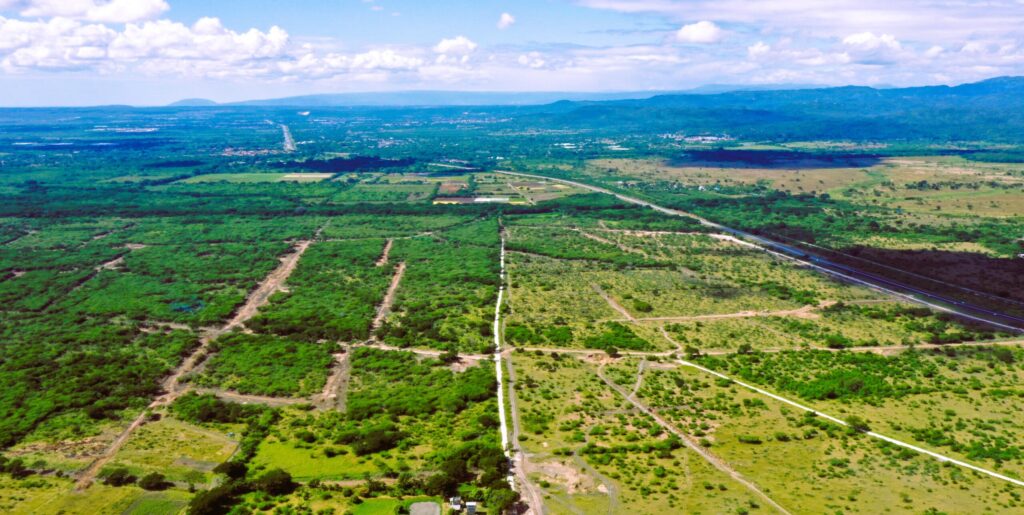
By tackling the barriers to participation of poor and vulnerable farmers, through facilitating access to training, land, irrigation, other productive inputs and financing the Project will contribute to the continued recovery of the rural economic sector, food security, social inclusion and gender equality, while significantly addressing the environmental risks.
Since a major proportion of the rural population depends on agriculture as the primary economic and income-generating activity, the Project will offer new fertile agricultural lands, farm access roads, climate smart irrigation facilities, and a matching grant scheme (for small-scale male, female youth, PWD farmers and Producer Groups).
To support the ongoing recovery of commercial agriculture. The Project will build upon and /or strengthen the knowledge, capabilities and practices of local farmers and their organizations, utilizing social and gender responsive approaches.
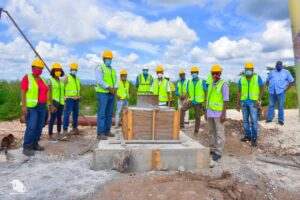
First project proposal was completed in 2018 in conjunction with the National Irrigation Commission (NIC). Handover of the project to Agro Invest for Agricultural Development and Enhanced Productivity has a projected date of June 2023.
The project essentially was developed to enhance the agricultural production and marketing systems, strengthen the capacity of [producer/s group, enhance the agricultural value chain, capacity building and establishment of a Matching Grant Scheme.
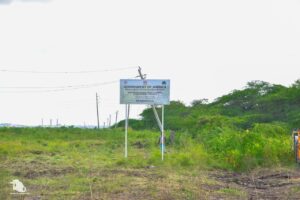
The project description is outlined below:
- Infrastructure Works
- Improved irrigation, drainage, farm roads, and flood control systems. Incorporating climate resilience measures – renovating, enclosing and expanding water channels; well development; rehabilitating and expanding pressurized transmission and distribution networks, drainage and flood control systems, and feeder roads, installing Supervisory Control and Data Acquisition (SCADA) Systems; and
- Enhanced Agricultural Production and Marketing Systems – construction of pack houses and G-GAP structures that incorporate renewable energy efficiency measures.
- Engineering and Constructing Services
- Consulting services for the supervision of infrastructure works.
- Goods
- The supply of equipment for the pack houses and GLOBALGAP structures; goods and equipment in support of farmers/producer groups (PGs) capacity building in CSA and G-GAP; vehicles, office and GIS equipment for the Project Execution Unit (PEU); and irrigation security, monitoring and control systems. The provision of on-farm irrigation (and other goods/equipment, inputs) to eligible small-scale farmers/PGs –including women and youth – in project area through a Matching Grant Scheme (MGS). The MGS is an extremely important section of the project which entails funding being provided through the Caribbean Development Bank and this funding will be used to purchase farm and irrigation equipment.
- Agro Invest is in the process of developing a Steering Committee to assist in the establishment of the Matching Grant Scheme.
- Other Project Support Services
- Provision of financing to complement that available under the EVADP for Development of Gender-responsive: National Advocacy and Awareness Raising Campaign on Inclusive Career Pathways in Agriculture; Guidelines for Mainstreaming Economic Inclusion of Poor an Vulnerable Groups in Agriculture; and Training Manual for Producers; Groups to Strengthen their Organizational Capacity and Sustainability. The consultants will be engaged under the EVADP.
- Capacity Building
- The provision of training and advisory services to project stakeholders including small-scale poor and vulnerable male and female farmers/PGs to:
- improve adoption/compliance with G-GAP and CSA
- enhance their capacity to establish business linkages with commercial producers/high value markets.
- The development of the G-GAP and CSA training programme/materials will be financed under the EVADP. SPAD will meet the cost associated with the delivery of G-GAP and CSA capacity-building initiatives in Parnassus and Amity Hall.
- Project Management
- Support MOAF in the management of Project implementation through the restricting and expansion of the EVADP Project Implementation Unit (PEU); undertaking annual financial audits of the project’s Designated Accounts (DA); implementation monitoring and reporting.
AGRO INVEST’S ROLE AND RESPONSIBILITES AS IT RELATES TO THE SPAD PROJECT
The investment in on-farm climate smart irrigation equipment and training for poor and vulnerable farmers is intended to contribute to building resilience to adverse weather events and improving food security within rural communities. Therefore under the Project, Agro Invest will be responsible for providing access to (i) land, inputs and technical services in CSA and GAP; (ii) financing for small-scale farmers through an MGS; (iii) market arrangements through the establishment of both horizontal and vertical linkages between rural farmers/PGs and larger commercial farms, agro processors, distributors and exporters; and (iv) training in the good use, operations and maintenance of investments in on farm irrigation equipment and facilities. This multifaceted approach will enhance both the sustainability and profitability of commercial farming while boosting social equity and safeguarding against environmental degradation.
Fundamentally Agro Invest is responsible for:
- Agricultural Development
- Sub-Division of land
- Market Linkage
- Provision of Lease Agreements
- Determination of crops to be cultivated
- Group Clustering
- Tractor Service
- Global Gap Facilitation
- Establishment of Storage, Packing and Agro Processing Facilities
- Institution of Climate Smart Agricultural Practices
- Development of a Steering Committee to assist in the establishment of the Matching Grant Scheme
- Enhancement of the Agricultural Value Chain
- Ensure increased productivity and access to markets in the project areas
SPAD INVESTMENT OPPORTUNITY
1.0 Amity Hall/Bridge Pen Property
Amity Hall/Bridge Pen property encompasses 965.62 acres. Two hundred acres have been allocated to Youths, Women, and persons with Disabilities, with 100 acres designated for tree crops and 100 for vegetables, roots, and tubers.
After extracting the land for youths, women, and persons with disabilities, the remaining acreage is 765.62 acres.
- Of the remaining acreage, 460 acres will be allotted to orchard crops:
- Mango: 200 acres
- Ackee: 130 acres
- Breadfruit: 40 acres
- Avocado: 90 acres
The remaining 306 acres are allocated for vegetables, roots, and tubers, including onions, sweet potatoes, Irish potatoes, tomatoes, and others.
2.0 Parnassus Property
- The Parnassus property covers 760 acres.
- Allotment for Youths, Women, and Persons with Disabilities: 150 acres have been allotted to this group.
- Remaining Acreage: After the allotment for youths, women, and persons with disabilities, the remaining acreage is 610 acres.
- Orchard Crops: Out of the remaining acreage, 200 acres will be dedicated to orchard crops:
- Mango: 90 acres (out of the total 200 acres)
- Ackee: 60 acres
- Avocado: 50 acres
- Vegetables, Roots, and Tubers: An additional 300 acres are allocated for vegetables, roots, and tubers. However, it’s important to note that 110 acres already have unregularized tenants.
